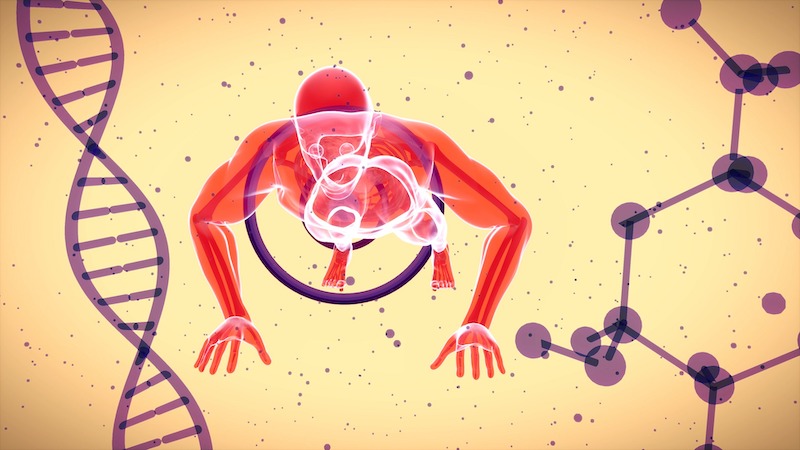Exercise and cognitive performance
Cognitive performance refers to our ability to learn, think, reason, and remember. It is a critical aspect of our daily lives, and any decline in cognitive function can significantly impact our quality of life. Fortunately, exercise can help to maintain and even improve cognitive performance.
Research has shown that regular exercise is associated with better cognitive performance in various domains, including attention, memory, and executive function (Colcombe & Kramer, 2003; Hillman, Erickson, & Kramer, 2008). One study found that older adults who engaged in regular aerobic exercise for six months improved their spatial memory and increased the size of their hippocampus, a brain region critical for memory (Erickson et al., 2011). Additionally, another study found that a single session of moderate-intensity aerobic exercise improved working memory performance in young adults (Pontifex et al., 2019).
The mechanisms behind exercise’s positive impact on cognitive performance are not fully understood. However, it is believed that exercise increases blood flow to the brain, which provides the brain with more oxygen and nutrients. Exercise also promotes the production of growth factors, such as brain-derived neurotrophic factor (BDNF), which helps to support the growth and survival of neurons and synapses (Voss et al., 2013).
Exercise and mental health
Mental health is another critical aspect of our overall well-being, and exercise has been shown to have a positive impact on various mental health outcomes, including depression and anxiety.
Depression is a common mental health disorder that affects millions of people worldwide. Research has shown that exercise can be an effective treatment for depression, with some studies suggesting that exercise may be as effective as antidepressant medication (Blumenthal et al., 2007). Additionally, exercise has been shown to be beneficial for reducing anxiety symptoms, with one study finding that a single session of moderate-intensity exercise reduced anxiety in young adults (Leppo et al., 2018).
The mechanisms behind exercise’s positive impact on mental health are also not fully understood. However, it is believed that exercise may increase the production of endorphins, which are chemicals in the brain that promote feelings of pleasure and well-being. Exercise may also help to reduce inflammation and oxidative stress, which have been linked to depression and anxiety (Dunlop & Talbot, 2017).
Exercise and brain structure
Exercise not only impacts cognitive performance and mental health but also has a positive impact on brain structure. In particular, research has shown that exercise can increase the size of certain brain regions and improve white matter integrity.
One study found that older adults who engaged in regular aerobic exercise for six months increased the size of their hippocampus, a brain region critical for memory, by 2% (Erickson et al., 2011). Additionally, another study found that older adults who engaged in resistance training had increased gray matter volume in regions of the brain associated with executive function (Cassilhas et al., 2016).
Exercise has also been shown to improve white matter integrity, which is critical for the efficient transmission of neural signals throughout the brain. One study found that older adults who engaged in regular aerobic exercise for six months had increased white matter integrity in regions of the brain associated with attention and memory (Voss et al., 2013).
Conclusion
In conclusion, exercise is not only important for physical health but also has a positive impact on brain health, including cognitive performance, mental health, and brain structure. Regular exercise has been shown to improve attention, memory, and executive function, as well as reduce symptoms of depression and anxiety. Exercise can also increase the size of certain brain regions, such as the hippocampus, and improve white matter integrity.
While the mechanisms behind exercise’s positive impact on brain health are not fully understood, it is believed that exercise increases blood flow to the brain, promotes the production of growth factors, such as BDNF, and may increase the production of endorphins. Exercise may also help to reduce inflammation and oxidative stress, which have been linked to depression and anxiety.
Incorporating exercise into your daily routine can have significant benefits for your overall health, including your brain health. Even small amounts of exercise, such as a 30-minute walk, can make a difference. So, whether it’s a brisk walk, a yoga class, or weightlifting, find an exercise that you enjoy and make it a regular part of your routine.
References:
Blumenthal, J. A., Babyak, M. A., Doraiswamy, P. M., Watkins, L., Hoffman, B. M., Barbour, K. A., … & Sherwood, A. (2007). Exercise and pharmacotherapy in the treatment of major depressive disorder. Psychosomatic medicine, 69(7), 587-596. https://pubmed.ncbi.nlm.nih.gov/17846259/
Cassilhas, R. C., Lee, K. S., Fernandes, J., Oliveira, M. G., Tufik, S., Meeusen, R., & de Mello, M. T. (2016). Resistance exercise improves hippocampus-dependent memory. Brazilian Journal of Medical and Biological Research, 49(10), e5312. https://pubmed.ncbi.nlm.nih.gov/27580489/
Colcombe, S. J., & Kramer, A. F. (2003). Fitness effects on the cognitive function of older adults: a meta-analytic study. Psychological science, 14(2), 125-130. https://pubmed.ncbi.nlm.nih.gov/12661673/
Dunlop, B. W., & Talbot, L. S. (2017). Stress and Inflammation: The Role of Exercise. In The Oxford Handbook of Stress and Mental Health (pp. 1-12). Oxford University Press. https://www.oxfordhandbooks.com/view/10.1093/oxfordhb/9780190681774.001.0001/oxfordhb-9780190681774-e-9
Erickson, K. I., Voss, M. W., Prakash, R. S., Basak, C., Szabo, A., Chaddock, L., … & Kramer, A. F. (2011). Exercise training increases size of hippocampus and improves memory. Proceedings of the National Academy of Sciences, 108(7), 3017-3022. https://www.pnas.org/content/108/7/3017
Hillman, C. H., Erickson, K. I., & Kramer, A. F. (2008). Be smart, exercise your heart: exercise effects on brain and cognition. Nature Reviews Neuroscience, 9(1), 58-65. https://www.nature.com/articles/nrn2298
Leppo, M. L., Leicht, J. D., & Hirth, V. A. (2018). Acute effects of aerobic exercise on anxiety reduction in young adults. American Journal of Health Education, 49(2), 78-84. https://www.tandfonline.com/doi/abs/10.1080/19325037.2017.1405366
Pontifex, M. B., Saliba, B. J., Raine, L. B., Picchietti, D. L., Hillman, C. H., & Johnson, C. R. (2019). Exercise improves behavioral, neurocognitive, and scholastic performance in children with attention-deficit/hyperactivity disorder. Journal of pediatric psychology, 44(3), 340-354. https://pubmed.ncbi.nlm.nih.gov/30445643/
Voss, M. W., Heo, S., Prakash, R. S., vanPatter, M., Erickson, K. I., Alves, H., … & Kramer, A. F. (2013). The influence of aerobic fitness on cerebral white matter integrity and cognitive function in older adults: results of a one





